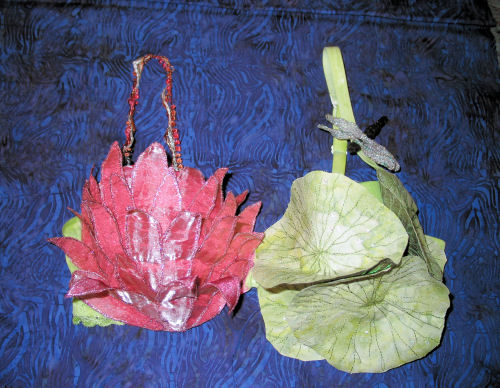5 Things You Can Do to Lower Your Cancer Risk
“You have cancer.”

Three little words, terrifying to their core. Have you or a loved one heard those words? Did they shake your foundations, make you wonder if you would live long enough to see next year, next month? One in three will hear those words in their lifetimes. Shocking!
I have heard those three little words. Actually, I knew I had breast cancer before doctor told me those words.
I had always had dense, fibrocystic breasts. When I had my physical at age 40, my doctor recommended a mammogram because of one particular lump. Although I felt my risk factors were low, I went anyways, and the study was normal. The radiologist also did an ultrasound just to be sure, and it, too, was normal. My doctor suggested another mammogram in a year – again normal, as was another ultrasound.
About 3 years after the initial mammogram, after the lump had been there for at least that long, I was getting dressed one morning. The way the light shone illuminated a puckering of the skin over that same lump. My heart dropped to my toes, because in medical school they teach you that puckered skin is a sign of tumor invasion into surrounding tissue. I knew that I had breast cancer.
After much consideration and prayer, I took the conventional route of lumpectomy, chemotherapy and radiation, followed by 5 years of tamoxifen. The tumor was 2.5 cm in diameter, Stage 2, although I had no sign of metastasis on any test. My hair fell out, my gut stopped working for days on end, I could not eat, I could not poop, and I had little energy. They tell you to drink a lot to flush out the toxic chemotherapeutic agents, but I could not keep anything down. Hard to stay hydrated that way!
Well, all of that was 14 years ago, and I have no sign of recurrence. Thank God! And I am grateful for every day He gives me.
I had always been pretty healthy, so learning that I had such a serious illness was quite a shock. What was wrong with my immune system that it failed to detect and eliminate these abnormal cells? Was it the long nights on call, the disturbed circadian cycles? Back then, I did not understand much about functional medicine, about the whys of illness and what one can do to identify and reduce risk and maintain wellness. Now, I know much more about the research on our risks and what we can do to stay healthy.
Why is there so much cancer? Certainly, there is a genetic influence on cancer risk, but inherited cancer is rare, making up only about 5% of all cancers. The good news is that diet and lifestyle, factors we can control, have a great impact on cancer risk. Genes are not our destiny!
Obesity, insulin resistance and prediabetes, processed foods devoid of nutrients, high sugar consumption and low fiber intake are all associated with increased risk for cancer. These same factors also raise one’s risk for diabetes, heart disease, Alzheimer’s, and many other illnesses associated with modern society: autoimmune disorders, allergies, mood disorders, to name a few.
There are many chemicals present in our environment that are carcinogenic, or cancer-causing. Cigarette smoke contains many of these carcinogens, but pesticides, endocrine-disrupting chemicals (EDCs), flame-retardant chemicals like polybrominated diphenyl ethers (PBDEs)
How you can lower your risk for cancer
1. Eat well, eat organic.
High-quality food fuels your immune system, your liver and its ability to process and eliminate the many chemicals and toxins we are exposed to every day. Lots of vegetables – at least 5 servings per day – and fiber are very important.
2. Don’t smoke!
And avoid second-hand smoke.
3. Reduce your exposure to endocrine-disrupting chemicals (EDCs).
EDCs are not hormones but are hormone “mimics” or fake hormones. The body can mistake these for hormones, and they can turn on or turn off various hormonal functions.
4. Get enough sleep.
And, try to get to sleep and wake up around the same time every day. Ideally, most adults need 7-8 hours each night. Kids need even more!
5. Lower your stress levels.
Stress comes in many forms: the job you hate, the kids bullying you at school, abusive relationships, illness and pain, nutritional deficiencies, not enough exercise – or too much exercise. Meditation, a spiritual practice, community, dance, art, yoga, deep breathing, and tapping are all great ways of lowering your stress.
Here is a list of several common household chemicals that are linked to cancer
Phthalates: fragrance stabilizers found in perfumes, air fresheners, soaps and detergents
Parabens: preservatives in personal care products
Polybrominated diphenyl ethers (PBDEs): flame retardants
Lead: found in makeup; paint (especially on cheap children’s toys and old houses)
 For more information on EDCs, check out my free eBook, “Hormone Wreckers”. Another great source is the Environmental Working Group . I also highly recommend Dr Lise Alschuler, ND’s excellent book, “The Definitive Guide to Cancer: An Integrative Approach to Prevention, Treatment and Healing”.
For more information on EDCs, check out my free eBook, “Hormone Wreckers”. Another great source is the Environmental Working Group . I also highly recommend Dr Lise Alschuler, ND’s excellent book, “The Definitive Guide to Cancer: An Integrative Approach to Prevention, Treatment and Healing”.
There are things you can do now to lower your risk. Especially if you have a family history of cancer, start today to learn how to protect yourself and your loved ones.
In health,
Patty Powers, MD

